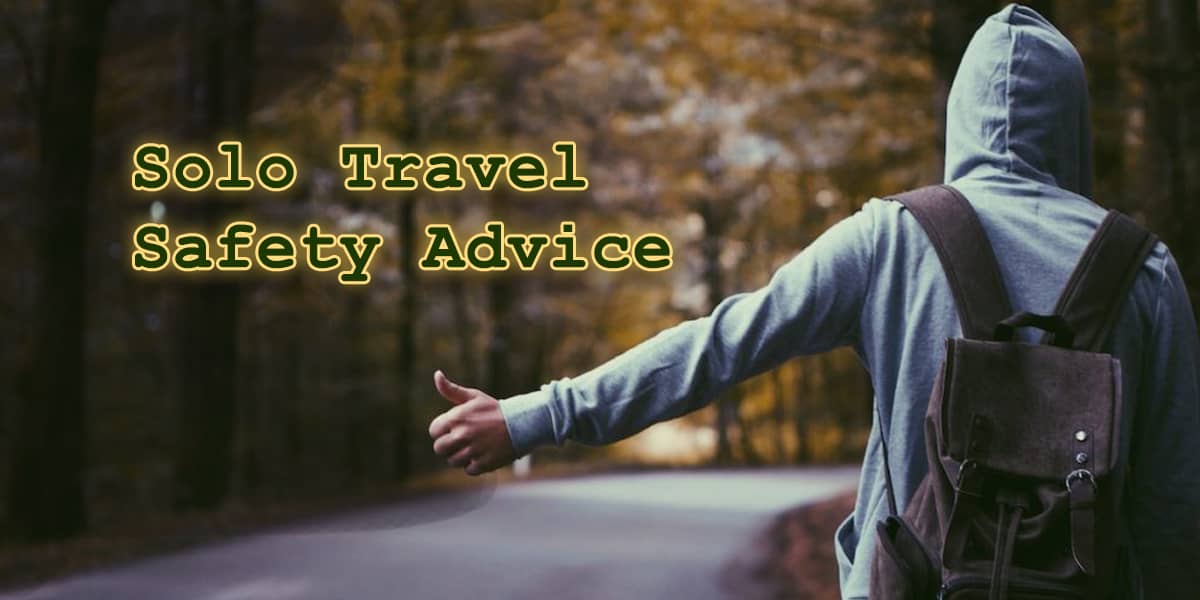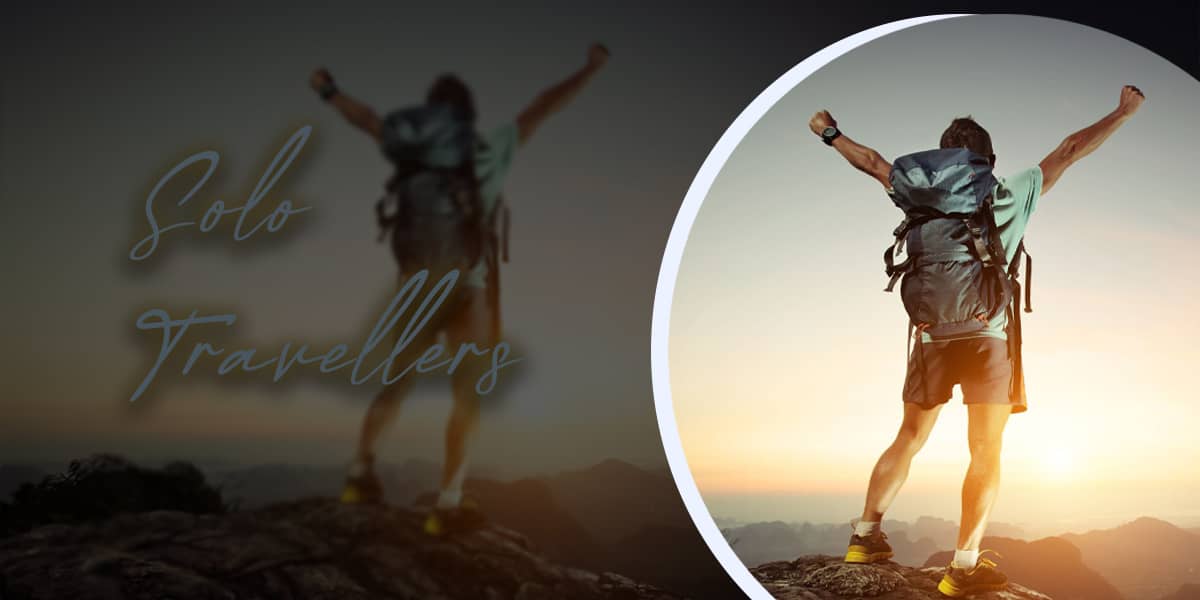Solo Travel Safety: Advice for solo travelers to stay safe

Solo Travel Safety: Advice for solo travelers to stay safe
Embarking on a solo travel adventure can be an incredibly rewarding experience, offering freedom and self-discovery. However, it’s important to prioritize Solo Travel Safety while exploring unfamiliar environments. Solo travelers can confidently enjoy their journey by following a few essential tips and implementing practical strategies. This article will provide a comprehensive guide on sole travel safety, focusing on tips for navigating unfamiliar environments and maintaining personal security.
index
ToggleResearch Your Destination
Research your destination’s customs, traditions, and social norms to ensure you respect local customs and avoid inadvertently offending anyone. Familiarize yourself with the laws and regulations of the country or city you visit to avoid legal complications. Research the safety devices for solo travelers and the reputation of different neighborhoods in your destination. Opt for well-populated areas with good transportation connections, especially if you arrive late at night.
Share Your Itinerary
Inform a trusted person: Share your detailed travel itinerary with a trusted friend or family member. Include your accommodation details, transportation plans, and contact information. Regularly update them about any changes to your goals
Check-in regularly: Establish a routine to check in with someone back home, either through text messages, phone calls, or online messaging apps. This way, they will know your whereabouts and raise the alarm if needed.
Personal Security as Solo Travel Safety
Blend in with the locals: Dress appropriately and blend in with the local culture to avoid drawing unnecessary attention to yourself as a tourist.
Be cautious with personal information: Avoid sharing too much personal information with strangers, especially in public spaces. Exercise discretion when discussing your travel plans, accommodation details, or solo travel status.
Trust your instincts: Listen to your intuition and trust your gut feelings. If a situation or person makes you uncomfortable, remove yourself and seek a safer environment.
Accommodation Safety
Choose reputable accommodation: Opt for well-reviewed accommodations with a good safety record. Look for features like secure locks, 24-hour reception, and well-lit common areas.
Request specific room location: When checking in, request a room near the main entrance or on higher floors for added security. Avoid ground-floor rooms with direct external access.
Use safety features: Utilize all available room security features, such as deadbolts, chain locks, and peepholes. Keep your room locked at all times, even when inside.
Transportation Safety
Research transportation options: Familiarize yourself with the local transportation system before arriving. Opt for licensed taxis, reputable ride-sharing services, or public transportation with good reviews and safety records.
Share rides: Share rides with other travelers or use the “Share My Ride” feature on some ride-hailing apps. It adds an extra layer of safety and minimizes the risk of unauthorized drivers.
Avoid traveling at night: If possible, avoid traveling alone, especially in unfamiliar or high-risk areas. Plan your activities during daylight hours or arrange safe transportation through your accommodation.
Stay Connected
Have a working phone: Ensure you have a functioning mobile phone with a local SIM card or an international roaming plan. Having a reliable means of communication is essential in case of emergencies or unexpected situations.
Download safety apps: Install apps on your phone that provide features like emergency contact information, location tracking, or personal safety alerts. Some popular options include Safeture, TripWhistle, and bSafe.
Money and Valuables
Carry minimal cash: Avoid carrying large sums of cash. Instead, use a combination of cash, credit cards, and prepaid travel cards. Keep a backup credit card and some emergency cash in a separate and secure location.
Use a money belt or hidden pouch: Invest in a discreet or hidden pouch to store your passport, credit cards, and cash while exploring. Keep it concealed under your clothing to deter potential thieves.
Split up your valuables: Divide your money and cards into multiple locations. Keep some in your money belt or hidden pouch and others in a secure compartment in your luggage. This way, you can access funds even if one location is compromised.
Local Contacts and Support
Connect with local communities: Engage with local communities through organized tours, cultural events, or community gatherings. It can provide a support network and the opportunity to meet fellow travelers or expatriates who can offer advice and assistance.
Register with your embassy: Register your travel plans with your embassy or consulate. It will ensure that you receive important travel advisories and updates and provide a point of contact in emergencies.
Street Smart Practices
Stay aware of your surroundings: Remain observant and aware of your surroundings at all times. Avoid distractions such as excessive phone use or wearing headphones, as this can make you an easy target for theft or other crimes.
Walk confidently: Walk with purpose and confidence, even if you still determine your exact location. It can help deter potential criminals who may target individuals who appear vulnerable or lost.
Use well-lit and populated routes: Stick to busy streets, particularly at night. Avoid dark, secluded areas that may pose a higher risk.
Learn Basic Self-Defense
Take self-defense classes: Consider enrolling in a basic self-defense course before your trip. Learning simple techniques can boost your confidence and provide valuable skills in an unexpected situation.
Carry personal safety devices for solo travelers: Carry a personal safety device such as a whistle, personal alarm, or pepper spray (if legal in your destination). These tools attract attention and potentially deter attackers.
Emergency Preparedness
Know emergency numbers: Save the local numbers, including police, ambulance, and fire services, in your phone. Research the appropriate emergency services contact information for each country you visit.
Learn basic phrases: Familiarize yourself with basic terms in the local language, such as “Help,” “Emergency,” or “I need assistance.” It can help you communicate and seek help in case of emergencies.
Conclusion
Solo travel can be an exhilarating and transformative experience. By prioritizing personal safety and following these detailed tips for navigating unfamiliar environments, you can enhance your travel experience and explore with confidence. Remember to research your destination, share your itinerary, prioritize personal security, choose secure accommodations, ensure safe transportation, and stay connected. Embrace the spirit of adventure while remaining vigilant, and your solo travel journey will be memorable and safe.
Recent Posts
Contact Us
+1 437 499 4559










